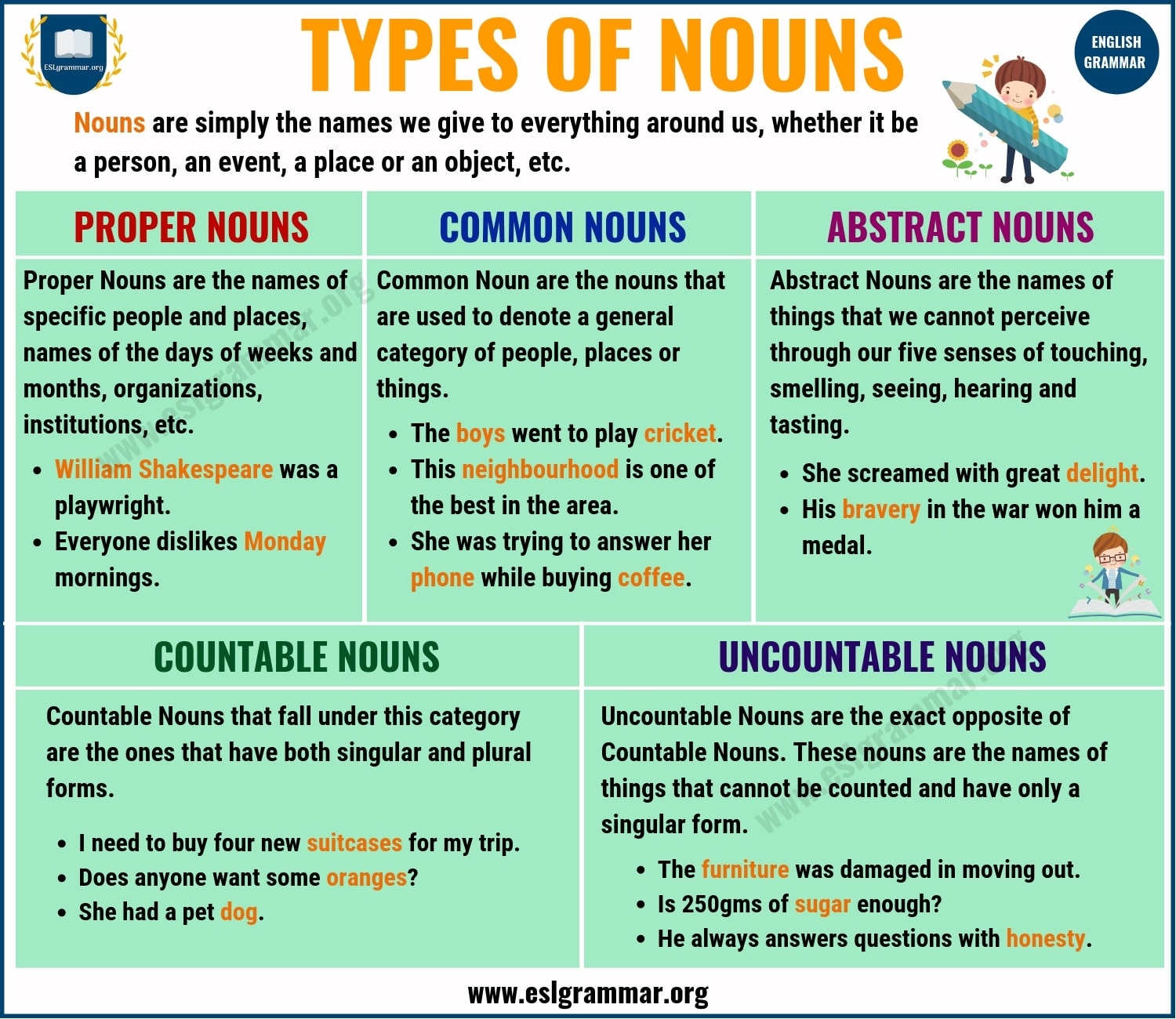Nouns are an essential part of speech that help us communicate effectively. They are words that represent people, places, things, or ideas. There are various types of nouns that serve different purposes in sentences. Understanding these different types can help improve your writing and communication skills.
In the English language, nouns can be classified into several categories based on their use and functions. Each type of noun has its own unique characteristics and plays a specific role in a sentence. Let’s explore some of the common types of nouns.
Types of Nouns
1. Common Nouns: Common nouns are general names given to people, places, things, or ideas. They do not refer to any specific individual or object. Examples of common nouns include “teacher,” “city,” “book,” and “love.”
2. Proper Nouns: Proper nouns are specific names given to unique individuals, places, or things. They always begin with a capital letter. Examples of proper nouns include “John,” “Paris,” “Mount Everest,” and “Coca-Cola.”
3. Abstract Nouns: Abstract nouns refer to ideas, concepts, or emotions that cannot be perceived by the five senses. Examples of abstract nouns include “happiness,” “freedom,” “justice,” and “loyalty.”
4. Collective Nouns: Collective nouns are used to refer to a group or collection of people or things as a single unit. Examples of collective nouns include “family,” “team,” “flock,” and “herd.”
5. Countable and Uncountable Nouns: Countable nouns can be counted and have both singular and plural forms. Uncountable nouns, on the other hand, cannot be counted and do not have a plural form. Examples of countable nouns include “apple” (apples) and examples of uncountable nouns include “water” (no plural form).
Understanding the different types of nouns can help you use them correctly in your writing and speech. By identifying the type of noun you are using, you can ensure clarity and precision in your communication. Practice identifying and using different types of nouns to enhance your language skills and become a more effective communicator.
In conclusion, nouns are essential building blocks of language that help us express ideas and communicate effectively. By recognizing and understanding the various types of nouns, you can improve your writing and speaking skills. Whether you are using common nouns, proper nouns, abstract nouns, collective nouns, or countable and uncountable nouns, each type plays a vital role in conveying meaning and information. Keep practicing and honing your skills to become a more proficient user of nouns in your everyday communication.
